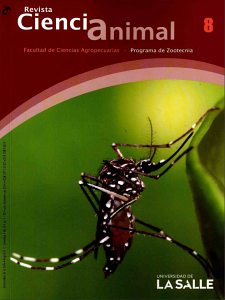Abstract
Today, technology transfer processes are generated from various locations ignorant of the conditions of production in the tropics (similar to the conditions in Colombia); eventually, these processes could become obstacles to achieving the sought competitiveness, by generating undesirable and unplanned events, rather than actual mechanisms of standardization for livestock production. Standardization is to be understood not as the copy of models, but as the search for common points of intersection that generate better productive developments and improve marketing schemes, productivity, and profitability. In Colombia there are companies devoted to sheep and goat farming, constituted mostly by people with empirical knowledge as part of the cultural inheritance they received from their ancestors, where information is extracted from systems of cognition and perception allowing them to select the most appropriate and useful solutions. Such adaptations are preserved and passed on from generation to generation through oral or empirical means; these are knowledge on soils, climate, vegetation, animals, and ecosystems that often result in multidimensional strategies. This paper discusses and provides a starting point to build a model consistent with the productive reality of Colombia and applicable to the everyday life of sheep and goat producers, regarding the use or the construction of models of good farming practices or the validation of traditional practices as benchmarks for product differentiation.Downloads
Download data is not yet available.



